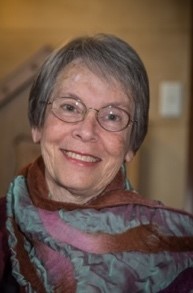A Diagnosis 50+ Years in the Making

Jan’s story will likely resonate with a lot of other people around her age. She’s now 78 and like so many older Australians, Jan lived with IBD for decades before receiving a diagnosis.
As a baby, she suffered with problems with her digestive system and intolerances to various foods. During her childhood and teenage years, she was thin and frequently had bouts of diarrhea. At that time, one of the remedies offered to Jan was castor oil – a particularly shocking suggestion given that castor oil is known to cause diarrhea. She says, “the outcome from attempting to treat my symptoms with castor oil was so horrific and torturous that I wished I was dead.”
Thankfully Jan’s parents decided to cease the castor oil treatment but as she moved into her 20s, she suffered from almost constant diarrhea.
Throughout her 30s, 40s and 50s, Jan continued to experience pain, bloating, diarrhea, malabsorption and weight loss, along with joint and muscle aches and pains, fatigue and skin problems. Throughout this time, doctors simply prescribed herbal medications, “better nutrition” and, at one stage, she was treated for the more commonly diagnosed IBS.
The Diagnosis
In 2001 following a colonoscopy, a gastroenterologist diagnosed Jan with Crohn’s disease and started her on Salazopyrin. Unfortunately, a negative reaction to the medication led to two weeks of hospitalisation.
Due to family circumstances and the specialist moving out of the area, Jan didn’t follow up with another gastroenterologist for a second colonoscopy until 2006. He agreed that Crohn’s was “likely” to be the problem, before then telling Jan that “there is no evidence of Crohn’s” after a third colonoscopy in 2010.
In 2009, following abnormal blood test results, a specialist haematologist diagnosed hyposplenism, which he commented was consistent with a diagnosis of Crohn’s.
About this time, the GP who was treating Jan and often thought in a way that was considered “outside of the box” for the time, suggested eliminating gluten from her diet and consulting with a dietician.
These were Jan’s working years and so she forged on, often unwell but determined not to let her symptoms rule her life. She says now though, in hindsight, that both her social life and her professional life were often very restricted.
Jan’s life continued to centre around her bowel problems and, as time passed, her condition worsened. Out of desperation, she began her own research, which is when she found the CCA website and contacted the CCA IBD nurse.
The CCA nurse recommended she see another gastroenterologist and Jan’s current GP was able to set up a referral.
Following yet another colonoscopy and endoscopy with multiple biopsies, there was finally a definitive diagnosis of Crohn’s, along with the IBS and diverticulitis. A faecal calprotectin test at this time showed the inflammatory marker at 463 – the normal range being up to 50.
The Outcome
Jan’s IBD and Crohns certainly still have a major impact on her life. As an older person, she finds that she doesn’t bounce back as quickly from flare-ups and the recovery process is more significant.
Her life is often still restricted by the diseases, as she’s reluctant to make commitments that may rely upon her presence.
“The diseases are unpredictable and so I usually avoid making plans too far in advance. I can feel fine when I make a commitment or a plan, but a week later when the occasion arises, I’m incapable of leaving the house,” she explains.
However, Jan says that finally receiving a formal diagnosis has made a huge difference to her life.
“The pain has become better since the diagnosis. Just knowing exactly what’s causing the pain makes it much easier to deal with and I’m now in a position where I can develop more informed and effective strategies for coping. New medication has also made a difference. How helpful it would have been 70 years ago to have received definitive diagnoses of these conditions. My hope is that no one will now need to live so long with undiagnosed IBD and that better diagnostic methods and treatments will continue to be reflected in the lives of those suffering with this disease.”
Jan’s Advice
For older people who are living with IBD or going through the diagnostic process, Jan has two pieces of advice. The first is that you should never accept worsening symptoms as part of the aging process. If you find that your condition is becoming worse, get a range of opinions and find a specialised medical professional who can dedicate time to assisting you.
The second piece of advice Jan has is to remain positive. She says, “A positive attitude is key. Make the most of when times are going well and learn to accept it when things aren’t going well. Pace yourself and don’t become too stressed trying to accomplish more than is feasible.”